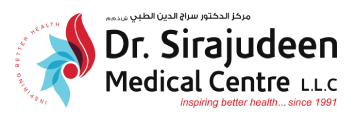When it comes to having healthy teeth, there is a lot of advice and tips from family, friends, and even social media. But, not all of this information is correct. In fact, there are some myths about oral health that are still believed to be true. This causes confusion and sometimes even more dental problems. If you are not sure what to believe and what not to believe, we’ve got you covered. In this blog, we will debunk the dental myths and tell you the facts about healthy teeth.
Dental Myths and Facts
Myth 1: If You Brush Your Teeth Very Hard, It Can Clean Your Teeth Better
Periodontitis is an advanced gum disease that results in gums pulling away from teeth, creating dents in the gum. Major symptoms include loose teeth, reduced gums, and bad breath. Some o the major factors that contribute to periodontitis are untreated gingivitis, poor oral hygiene, smoking, and other systemic diseases.
- Fact: Brushing your teeth with too much force can only do more harm than good. It is important to remove the plaque and small pieces of food that is stuck between your teeth, but if you brush too hard, it can reduce the enamel on your teeth (the protective outer layer) and cause gum problems. This may even lead to tooth sensitivity and increase the risk of cavities.
- What You Should Do: Use a soft-bristled toothbrush for your teeth and follow a gentle style with circular motions so your teeth will get cleaned. Brush for at least three minutes, two times a day. Flossing and regular dental check-ups are also good for dental health.
Myth 2: Cavities Can Only be Caused by Sugar
- Fact: Consuming too much sugar does have a role in forming cavities, but it is not the only reason. Cavities happen when the bacteria in your mouth start feeding on the sugars and carbohydrates. This produces acids and damages the tooth enamel. Some foods like bread, chips, etc can also cause this.
- What You Should Do: Limit eating more sugary and starchy foods. If you do eat them, brush your teeth soon after consuming them. Drinking water can help reduce acid levels in your mouth.
Myth 3: White Teeth Means You Have Healthy Teeth
- Fact: Dental facts for healthy teeth are, If you have a white set of teeth, it does not tell you how healthy they actually are. Natural teeth have different shades, and a few factors like age, genetics, and lifestyle (smoking or drinking coffee, wine, colored food, etc) can determine their color. Some people who have very healthy teeth may have a yellowish shade becuase of thicker dentin under the enamel.
- What You Should Do: Your focus should be on having strong enamel and healthy gums rather than having a brighter shade of white. You can get your teeth whitened but consult a good dentist for it.
Myth 4: Only If You Have a Problem, You Should Visit the Dentist
- Fact: Regular dental check-ups are important to prevent teeth problems before they become serious like gum disease. Many dental issues, like cavities, gum disease, and oral cancer, may not have symptoms until the later stages.
- What You Should Do: Always schedule a dental check-up two times a year or every six months, so you can quickly identify any potential issues and ignore such myths in dentistry. Preventive dental care saves you time, money, and discomfort.
Myth 5: Gum Bleeding is Normal While Brushing Your Teeth
- Fact: One of the first signs to look out for gum disease is bleeding gums. Yes, even while brushing, if your gums bleed, it can be because of gingivitis (gum disease). Healthy gums never bleed regularly and if you ignore this symptom, it leads to more gum problems, like periodontitis, which can cause tooth loss.
- What You Should Do: If your gums bleed while brushing, don’t think twice, just book a dentist appointment. Maintain proper oral hygiene and use a good antibacterial mouthwash.
Myth 6: Flossing Isn’t Necessary
- Fact: To remove plaque on the outer surface of your teeth, you can brush. But what about the food particles between your teeth? The answer is flossing–It helps clean the teeth by reaching all areas and prevents gum disease and cavities.
- What You Should Do: Flossing should be done at least once a day and before bedtime. You can even use floss picks or water floss to floss easier.
Conclusion
In conclusion, these dental facts and myths can help you maintain healthy teeth. By debunking these dental myths, you can make informed decisions about your oral health and protect your smile.
At Dr. Sirajudeen Medical Center, we provide a wide range of dental services that keep your oral health in top condition. Don’t rely on the myths, book your appointment now!
